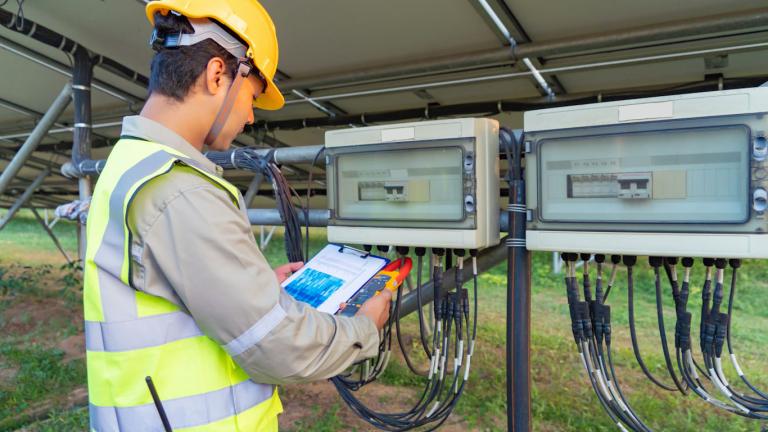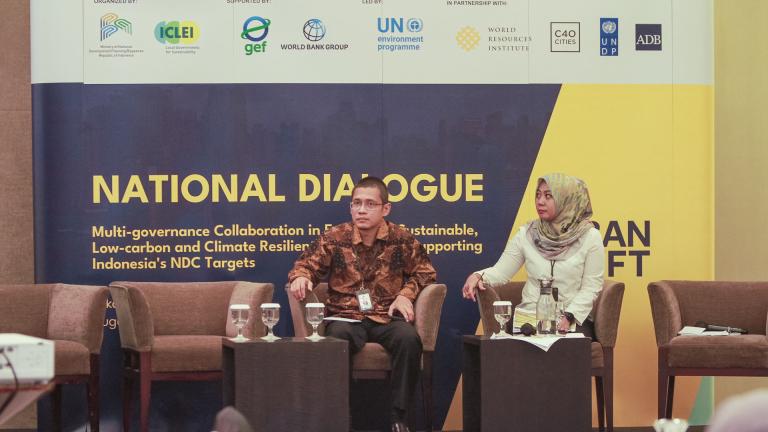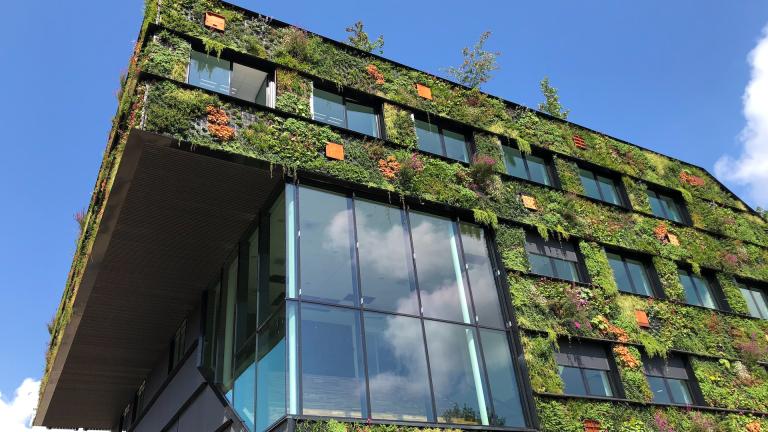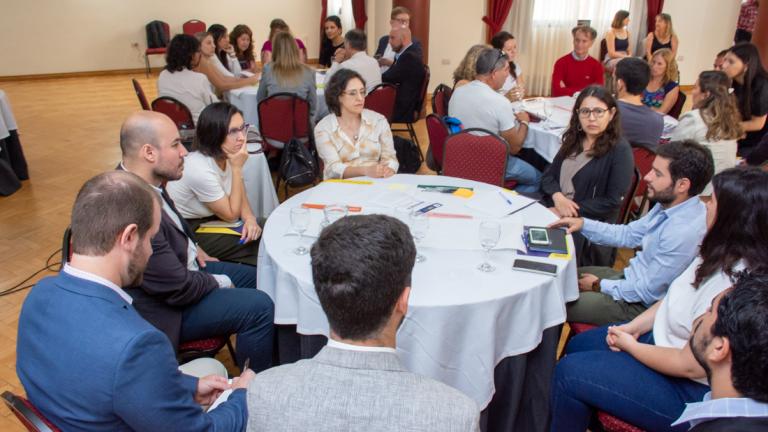Recap
Building Equitable Futures: Implementing a Just Transition in Urban Environments
In this webinar, urban climate leaders from Indonesia, South Africa, and China shared their countries’ latest efforts in implementing just transitions in urban settings.
By Karishma Asarpota and Saheel Ahmed (ICLEI - Local Governments for Sustainability)
In a recent UrbanShift webinar, held on October 24, 2024 urban climate leaders from Indonesia, South Africa, and China shared their countries’ latest efforts in implementing just transitions in urban settings: strategies that empower communities, prioritize equity, and aim to leave no one behind.
The session was moderated by Dewi Sari, Climate Action Officer at ICLEI World Secretariat, showcasing the innovative ways these nations are aligning urban development with ambitious climate goals. Panelists included Fabby Tumiwa, Executive Director of the Institute for Essential Services Reform in Indonesia; Dorah Marema, Head of the Municipal Sustainability Portfolio at the South African Local Government Association (SALGA); Dr Junyi Hua, Associate Professor at the Ocean University of China; and Emmanuel Azhar, Coordinator for Balikpapan’s Regional Development Planning Agency (BAPPEDAS). Each speaker brought a unique perspective, highlighting the complexities and strategies involved in driving an inclusive, equitable climate transition at various governance levels.
Indonesia’s Commitment to a Just Energy Transition
Fabby Tumiwa outlined Indonesia’s significant strides towards a sustainable energy future. He discussed the country’s involvement in the Just Energy Transition Partnership (JETP), which was launched during Indonesia’s G20 presidency in 2022. This ambitious program targets peaking power sector emissions by 2030 at 290 million tonnes of CO2, with a long-term vision of achieving net-zero emissions by 2060. Tumiwa explained how the partnership came with a financial package of $20 billion, sourced equally from the International Partners Group (IPG) and financial entities under the Glasgow Financial Alliance for Net Zero (GFANZ).
Tumiwa emphasized that the JETP includes robust plans for policy reform, investment strategies, and project implementation. To date, six key projects have begun under this partnership, with additional initiatives worth up to $2 billion under negotiation. He highlighted that early 2023 saw the establishment of a JETP Secretariat and multiple working groups focused on achieving these targets. Despite the progress, Tumiwa pointed out the challenges ahead, including aligning new governmental policies and securing long-term support to maintain the momentum of the just transition.
South Africa’s Multi-Level Approach to Climate Action
Dorah Marema detailed South Africa’s comprehensive approach to just transition describing the Just Energy Transition (JET) framework approved by the Presidential Climate Commission in 2022. This framework is a cornerstone for decarbonizing the nation’s economy while balancing social equity, given the country's reliance on carbon-intensive industries.
Marema noted that local governments are vital players in this process. SALGA’s involvement included nominating mayors to the Presidential Climate Commission and hosting the JET Municipal Conference, which brought together 257 municipal leaders and top government officials to outline their roles in implementing transition plans. The session also covered the development of KPIs such as renewable energy uptake, energy efficiency, and climate resilience measures to guide cities in achieving sustainable development.
Marema stressed the importance of resilience-building, especially for South African cities frequently affected by extreme weather events like floods. Addressing these challenges requires collaborative efforts between local, national, and international stakeholders, as well as securing adequate funding streams to mitigate climate impacts and reduce energy poverty.
China’s Strategy for Community-Based Adaptation
Dr Junyi Hua provided a comprehensive overview of how China integrates climate action into urban planning, focusing on the community level. He shared that China's 2035 National Climate Adaptation Strategy mandates provinces and cities to develop localized climate-resilient plans and robust emergency management systems. Dr Hua explained that urban adaptation in China involves both "hard" and "soft" measures, such as infrastructure upgrades, public education, and temporary shelters during extreme weather.
One innovative approach Dr Hua discussed is the concept of the “30-minute city”, ensuring that residents can access essential services within half an hour to reduce vulnerabilities during climate events. While local governments, neighbourhood committees, and NGOs collaborate on these initiatives, broader participation is still developing. Dr Hua mentioned that social media data and public surveys are increasingly used as KPIs to assess community engagement and satisfaction with climate actions.
Balikpapan’s Local Innovations in Climate Resilience
Emmanuel Azhar highlighted practical examples from Balikpapan, Indonesia, a city adapting to its unique climate challenges due to its proximity to the nation’s new capital. Azhar elaborated on the Climate Villages program, which empowers community groups to develop sustainable practices such as waste management and resilience-building projects.
A notable initiative is the city’s waste-to-energy project, which captures methane gas from landfills to supply 200 households with fuel, generating annual savings and extending landfill life. Azhar also spoke about Balikpapan’s collaboration with the state electricity company to convert organic waste into solid fuel. Despite the city’s advancements, challenges remain in measuring renewable energy output, which Azhar hopes can be addressed as more comprehensive national policies develop.
Key Takeaways
- The Importance of Partnerships: Collaborative efforts spanning international, national, municipal, and community levels are essential for the success of just transitions.
- Tracking Success through KPIs: Effective measurement tools are needed to ensure that climate actions are both impactful and equitable, focusing on public engagement, renewable energy adoption, and resilience.
- Inclusion of Adaptation Strategies: While mitigation is a crucial element, adaptation is equally important for protecting vulnerable communities from the adverse effects of climate change.
The discussion underscored that just transitions are not monolithic but require tailored approaches that reflect local contexts and challenges. Indonesia’s financial and policy-focused JETP, South Africa’s municipal leadership, China’s community-based adaptation, and Balikpapan’s local innovations all illustrate the diverse paths cities are taking toward a just, sustainable future.
Watch the recording in English, Bahasa Indonesia and Mandarin.

Building Equitable Futures: Implementing a Just Transition in Urban Environments
A discussion on how to integrate just transition principles into urban planning, measure progress with key performance indicators (KPIs), and ensure an inclusive transition for all.

UrbanShift Advances Multilevel Governance Dialogues
These dialogues have taken place across seven UrbanShift countries to advance collaboration and alignment across all levels of government.

Enhancing Urban Infrastructure Resilience through Nature-Based Solutions in South Asian Cities
This webinar explores how nature can transform South Asian cities into resilient, sustainable, and thriving urban spaces.

Argentina’s Road to 2030: Collaborative Climate Action
Argentina's first UrbanShift National Local Dialogue emphasized collaborative climate action, uniting national and local governments to promote sustainable urban development, align with 2030 targets, and enhance governance and financing.

